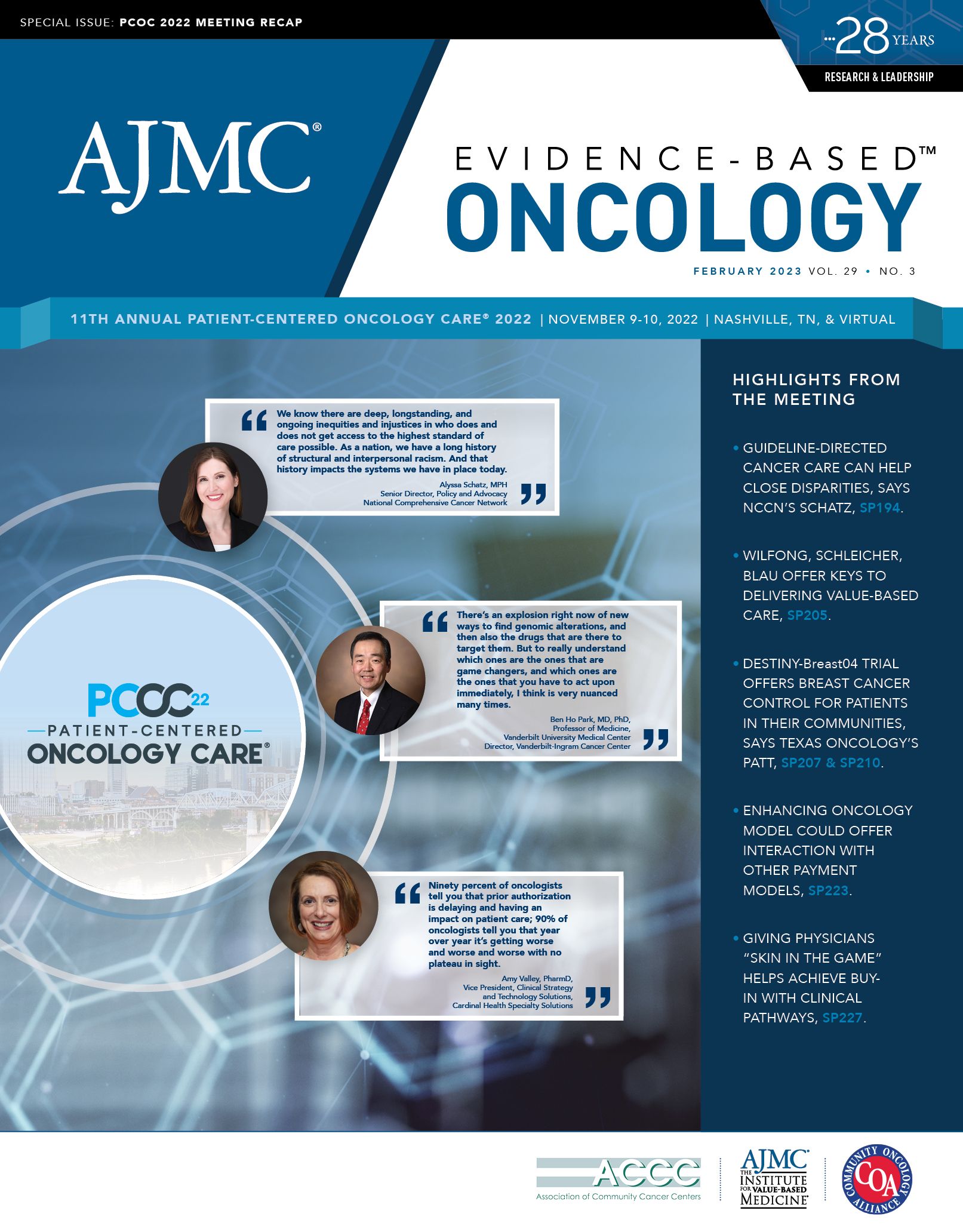- Center on Health Equity & Access
- Clinical
- Health Care Cost
- Health Care Delivery
- Insurance
- Policy
- Technology
- Value-Based Care
OneOncology’s Clinical Pathways Covers Best Practices for 90% of Patients, Says Ted Arrowsmith, MD, MPH
The disease groups that comprise OneOncology’s clinical pathways program cover 90% of patients with cancer and develop best practices for treating cancer in the majority of patients, said Edward “Ted” Arrowsmith, MD, MPH, managing partner and director of research, East Tennessee Division, Tennessee Oncology; and medical director for clinical pathways, OneOncology. He spoke with Evidence-Based Oncology™ (EBO) during the 11th Annual of Patient-Centered Oncology Care® (PCOC) meeting, held in Nashville, Tennessee.
EBO: What is the role of disease groups in the OneOncology clinical pathways program?
Arrowsmith: Our idea of pathways is to have them really be bottom up and then top down. We’ve instituted disease groups that cover about 90% of patients with cancer. They have experts from each of the 15 practices in OneOncology, and work collaboratively to develop the pathways to develop best practices for treatment of cancer for the majority of patients. Of course, there’ll be some patients [for whom] being off pathway is the right thing to do, but this is the expert consensus. It then comes up to the clinical team at OneOncology, who does clerical work and other work, and then helps push that information back to every doctor practicing across the practices in OneOncology.
EBO: How do member practices of OneOncology work with these clinical pathways day to day?
Arrowsmith: Our pathways process is relatively new. OneOncology is a new organization, and we’ve been working on pathways diligently for about 18 months. The main way that we see providers working with the pathways will be through a tool called Flatiron Assist. The OneOncology conference [held November 11-13 served] as the big rollout of that tool. That’s a clinical decision support tool developed in conjunction with Flatiron Health, who is our [electronic medical record] partner. Based on the intellectual work done by the disease groups [the tool] will guide clinicians to using a pathway concordant regimen, whenever they order. That can be customized by OneOncology based on value-based care, clinical trials, or other attributes that are unique to our practices.

